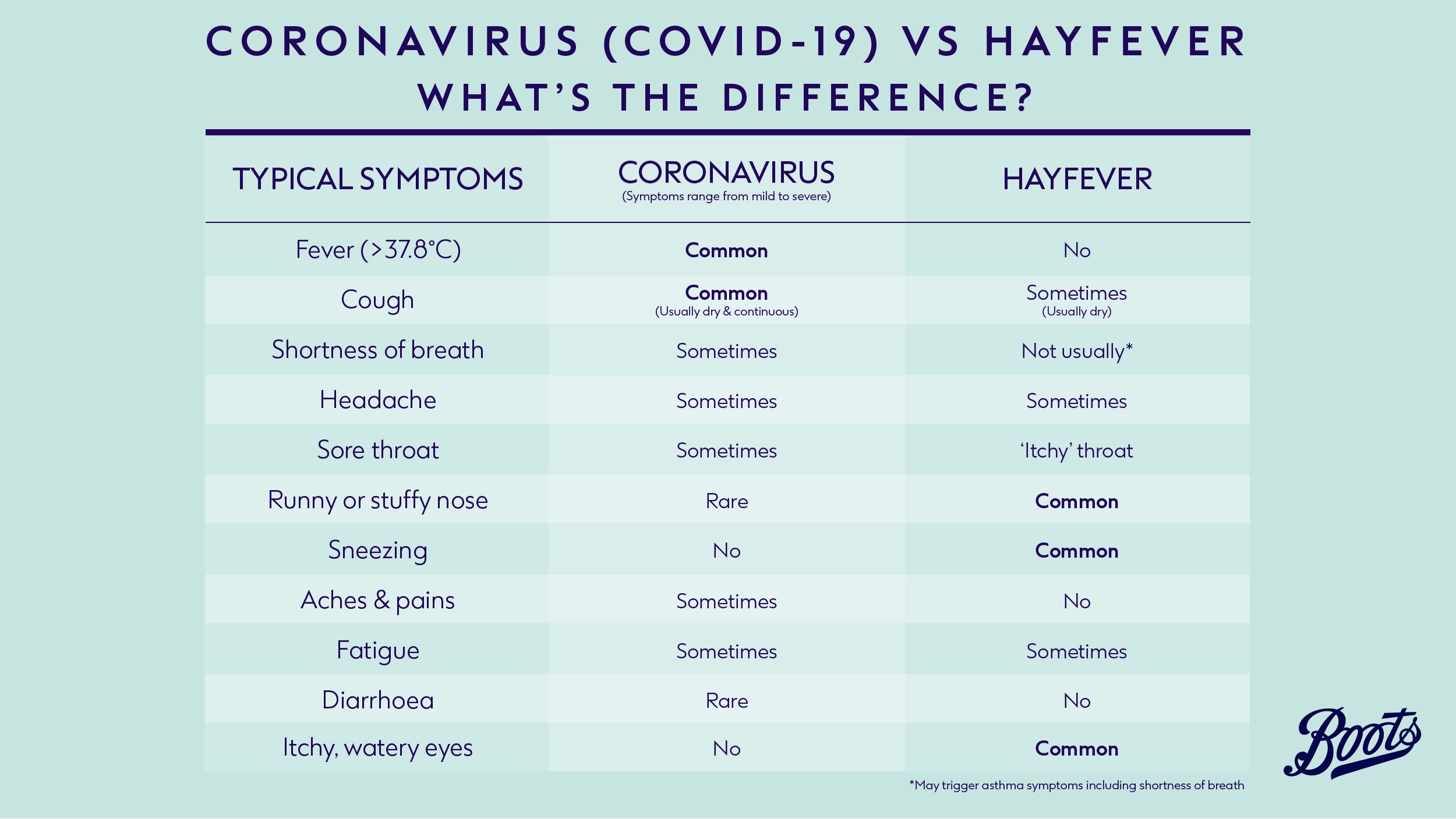
When spring and summer arrives each year, the days become longer, brighter and more colourful as nature comes back to life.
But along with the blooming of flowers and leaves comes pollen, the hay fever sufferer’s worst enemy.
Hay fever is an allergy caused by pollen grains that are released by trees and grass during pollen season, which lasts from March to September in the UK.
Tree pollen is released first, from late March to mid-May, and affects around a quarter (25 per cent) of the population. This season is followed by grass pollen, which starts in the first two weeks of June until the first two weeks of July.
There is also weed pollen, which can be released any time, but usually ends in September.
The weather conditions throughout spring and summer can affect the peaks and lows of pollen season. The lower the temperature, the less pollen is produced.
These are the main symptoms experienced by people who suffer from hay fever, and how to differentiate it from Covid symptoms:
What are the main symptoms of hay fever?
The main symptoms of hay fever, the NHS outlines, are:
- Sneezing and coughing
- A runny or blocked nose
- Itchy, red or watery eyes
- Itchy throat, mouth, nose and ears
- Loss of smell
- Pain around your temples and forehead
- Headache
- Earache
- Feeling tired
“Hay fever doesn’t cause a high temperature and most people don’t feel unwell,” says Marc Donovan, chief pharmacist at Boots.
The NHS adds that hay fever symptoms may last for weeks or months.
“In some people, hay fever can trigger allergic asthma, causing a tight chest and difficulty breathing,” Allergy UK states.
If an individual has hay fever and asthma, they may also experience a tight feeling in their chest and shortness of breath, in addition to wheezing and coughing.
How are they different to coronavirus symptoms?
The main symptoms of Covid-19 remain the same: a high temperature, a new, continuous cough and loss or changed sense of taste and smell, the NHS outlines.
If you have a high temperature, “this means you feel hot to touch on your chest or back (you do not need to measure your temperature)”, the health service explains.
If you have a new continuous cough, “this means coughing a lot for more than an hour, or three or more coughing episodes in 24 hours”.

“If you usually have a cough, it may be worse than usual,” the NHS adds.
However, the nine new symptoms added to the UKHSA’s list now includes:
- Tiredness
- Aches and pains
- Headache
- A sore throat
- A blocked or runny nose
- Loss of appetite
- Shortness of breath
- Some people have reported diarrhoea, nausea and a runny nose but this is rare
Although many of the symptoms appear similar to hay fever, the NHS advises that people should stay home and avoid others if the symptoms are present together with a high temperature, or if they are so bad that the patient is not well enough to work.
What can you do to ease hay fever symptoms?
You can ease your hay fever symptoms by taking measures such as putting Vaseline around your nostrils to trap pollen, wearing wraparound sunglasses when you’re outside to stop pollen from getting into your eyes and showering and changing your clothes when you come inside to wash the pollen off, the NHS states.
It is also advisable to stay inside and keeping your windows and doors shut as much as possible.
A pharmacist may also be able to advise you on what products may help you, such as antihistamine tablets or nasal sprays.
What should you do if you display signs of Covid-19?
If you experience symptoms that you think may indicate you have the coronavirus, you can take a test to confirm if you have Covid-19 or not. However, you are no longer legally required to self-isolate if you do test positive for the virus.
The NHS advises people who are displaying symptoms of Covid-19 with a high temperature, or who have tested positive, to stay at home and away from others.
It is particularly important to stay away from people who are at higher risk of serious illness from Covid-19.
According to the health service, you should try to stay at home and avoid other people for five days, and avoid meeting people at higher risk for 10 days, starting from the day after you did a test.
If you are worried about your symptoms or they get worse, call 111 or your GP surgery.







